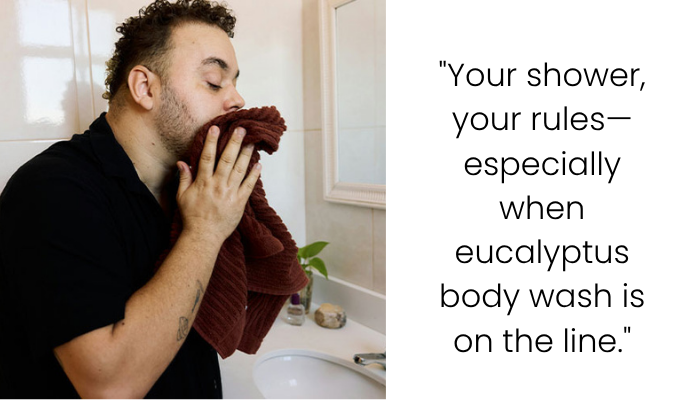“Hands Off!”: Passenger Slapped Awake on Red‑Eye Flight, Flight Attendant Backed Him Up
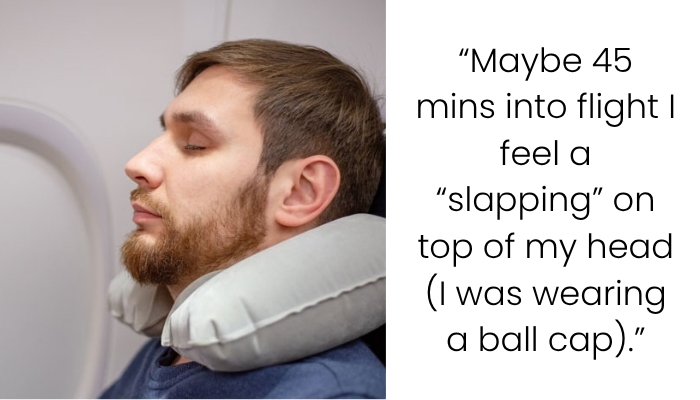
A dozing passenger on a red‑eye flight from Portland to Newark was abruptly jolted awake when the person behind him violently tapped his head—twice—because he’d dropped an earbud. Despite navigating grueling overnight travel fatigue, he firmly warned the man: “the one thing you won’t be doing is putting your hands on me again.” Support arrived in the form of a flight attendant who witnessed the encounter and sided with him—emphasizing that unwanted physical contact is unacceptable. The incident, shared online, sparked a wave of outrage over basic travel etiquette violations and underscored how airlines aim to curb unruly passenger behavior.
Advertisement – Continue Reading Below
First class air travel comes with its perks, but this passenger had a literal rude awakening on his recent red-eye flight
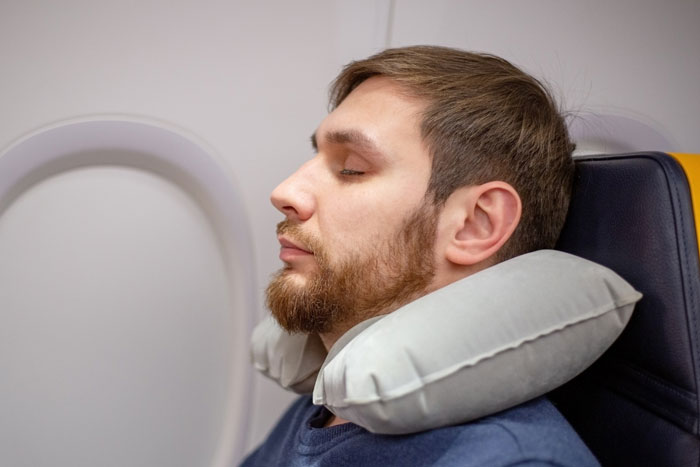
He was napping peacefully when the guy behind him slapped him awake for the most random reason









Sounds like quite the ordeal on that red-eye! You’ve painted a vivid, relatable scene—so here’s a mid-view breakdown: what happened, why it’s more than just rudeness, and what it reveals about shared spaces like airplanes.
🎯 1. What actually happened: boundaries violated
Your experience isn’t merely someone being awkward; it was someone crossing a physical and emotional boundary.
Advertisement – Continue Reading Below
- The slapping on the head, twice, wasn’t playful—it was invasive. Even if the emboldened passenger saw it as “just tapping,” the impact was equivalent to an uninvited touch.
- You, wearing a ball cap and half-asleep, were disoriented—and rightly reacted.
- Your firm response: “don’t touch me again.” He conceded. That’s validation of the boundary you set.
Flight attendants don’t agree with flight disorders lightly. The FA’s statement, “I saw the entire situation and I agree with you,” shows your reaction wasn’t over-the-top—it was justified.
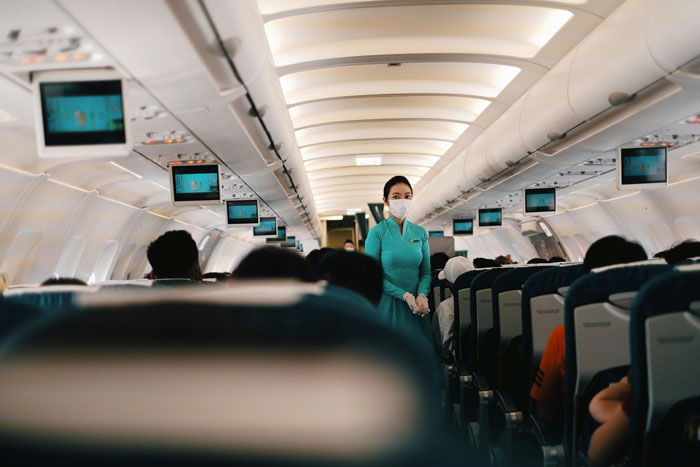
🤝 2. Why-touching-strangers is a bigger deal than it seems
a) The sanctity of personal space
Psychological research underscores how uninvited touch—even “innocent”—can feel threatening, especially in cramped settings like an airplane seat. It triggers the fight-or-flight response. You were already groggy; you didn’t deserve being rudely startled awake.
b) Power dynamics on airlines
You didn’t know this guy, didn’t invite anyone to touch you, yet he felt entitled to physically intervene when he “dropped his earbud.” Even one “tap” can escalate—especially in tight airline seats where space is limited. And it did escalate—twice.
Advertisement – Continue Reading Below
c) Flight etiquette and safety
FAA guidelines and behavioral norms around air travel emphasize respectful conduct—especially touch. A passenger smacking another passenger over and over would be irritating at best, assault at worst. For that FA to radio it upstairs shows the airline saw it as serious enough to pass along.
⚖️ 3. Broader implications: assaults even in economy
- Nonviolent assault laws in the U.S. define physical contact made without consent—no injury needed. Two purposeful taps qualify.
- Airlines take passenger reports seriously now. The “Do Not Fly” list (or “Security Concern” list) is growing, increasingly including people whose behavior—even minor contact—is seen as harassment.
- In crowded or community spaces (like a plane, bus, or gym), touching has extra weight. People feel cornered, and a single touch may trigger a fight or a panic.
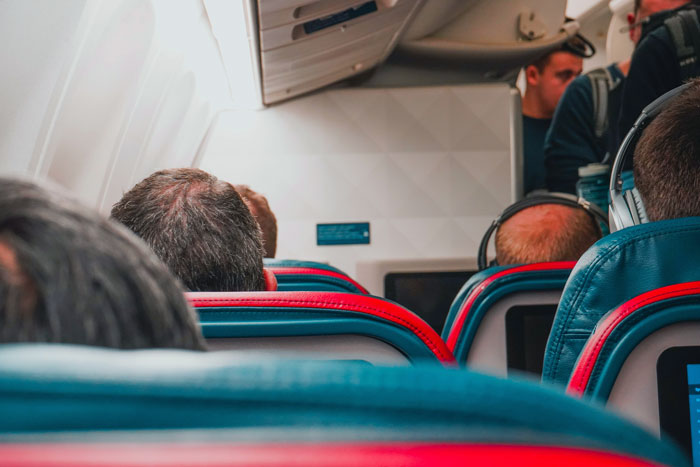
💬 4. Your response: assertive and proportionate
You didn’t yell; you didn’t slap back—you set boundaries cleanly and calmly. You explained the contact wouldn’t be tolerated and mentally shifted to fully awake. That’s not overreacting—that’s normal self-defense.
Plus, your wife confirmed his behavior before and during the flight—another signal you weren’t mistaken in fighting back.
Advertisement – Continue Reading Below
🚨 5. A society recalibrating acceptable public behavior
- Awareness of personal boundaries has increased since COVID and in light of workplace training around physical conduct.
- Airlines now routinely report passengers even over minor incidents.
- Air travel is a confined public space that demands cooperation—little deviations from norms can quickly degrade into drama or worse.
6. Final call: No apology necessary
You didn’t cross a line—you reinforced it. He disrespected your space, you stood your ground. The FA’s validation and your wife’s testimony back that up.
If anything, this is a reminder: we all share space in public, and respect isn’t optional. You handled it well, firmly, and with dignity.
In the comments, some readers shared their own in-flight horror stories while others praised the man for not taking more drastic action










